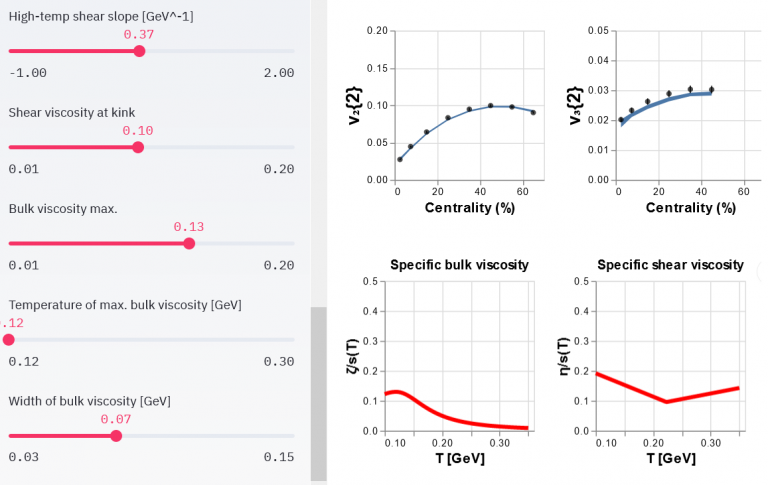Role
The SIMS Working Group assists in writing, maintaining and running physics and statistical software for modeling heavy ion collisions, as well as performing state-of-the-art model-to-data comparisons.
Publications
In 2022, we published "Role of bulk viscosity in deuteron production in ultrarelativistic nuclear collisions", in which we compared different models for the formation of deuterons in heavy-ion collisions, and studied the effect of bulk viscosity on the production of deuterons.
In "Phenomenological constraints on the transport properties of QCD matter with data-driven model averaging" (published in Physical Review Letter in 2021, and selected as Editors' Suggestion) and in "Multisystem Bayesian constraints on the transport coefficients of QCD matter" (published in Physical Review C in 2021), we presented a Bayesian inference on measurements from the RHIC and the LHC. We obtained state-of-the-art constraints on the shear and bulk viscosities of QCD, and applied for the first time in heavy ion studies multiple new concepts of Bayesian inference, including:
- Closure tests
- Critical examination of priors
- Bayesian model selection
- Bayesian model averaging
Click on the image to access a widget that shows how each model parameter affects hadronic observables.
Codes
The code of the multistage model used in the publications discussed above is publicly available here:
https://github.com/JETSCAPE/JETSCAPE/tree/sims-xsede-2021with additional documentation on how to use the code available here:
https://github.com/j-f-paquet/sims-event-generator/The code used for the Bayesian inference itself (design point generation, emulation, Markov chain Monte Carlo, ...) is also publicly available on Github:
https://github.com/j-f-paquet/js-sims-bayesMultistage model of heavy-ion collisions used in the 2021-2022 Bayesian inference
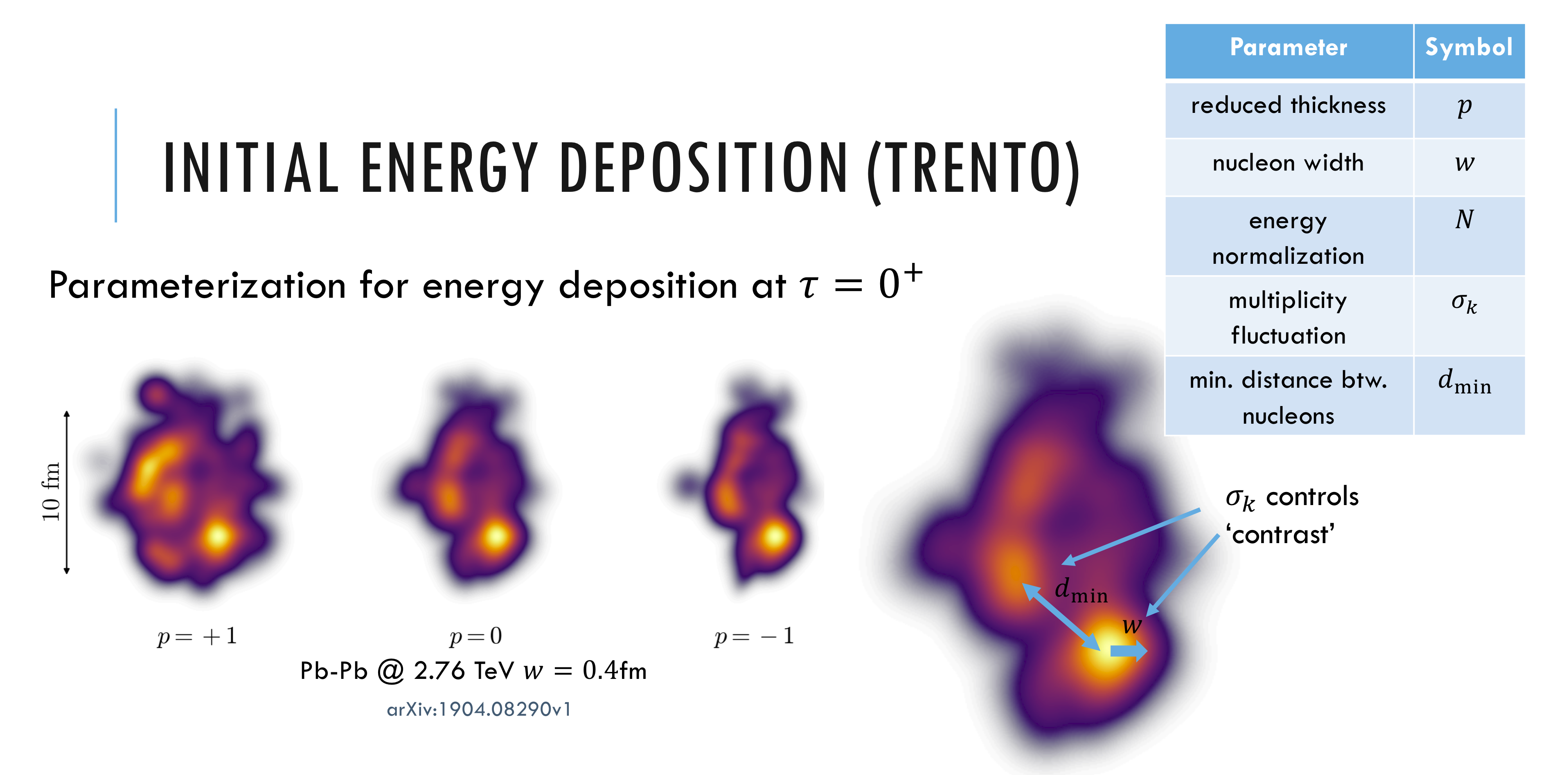
The first stage of the model gives the initial conditions. TRENTo is a model that parameterizes the initial energy deposition immediately following a heavy ion collision.
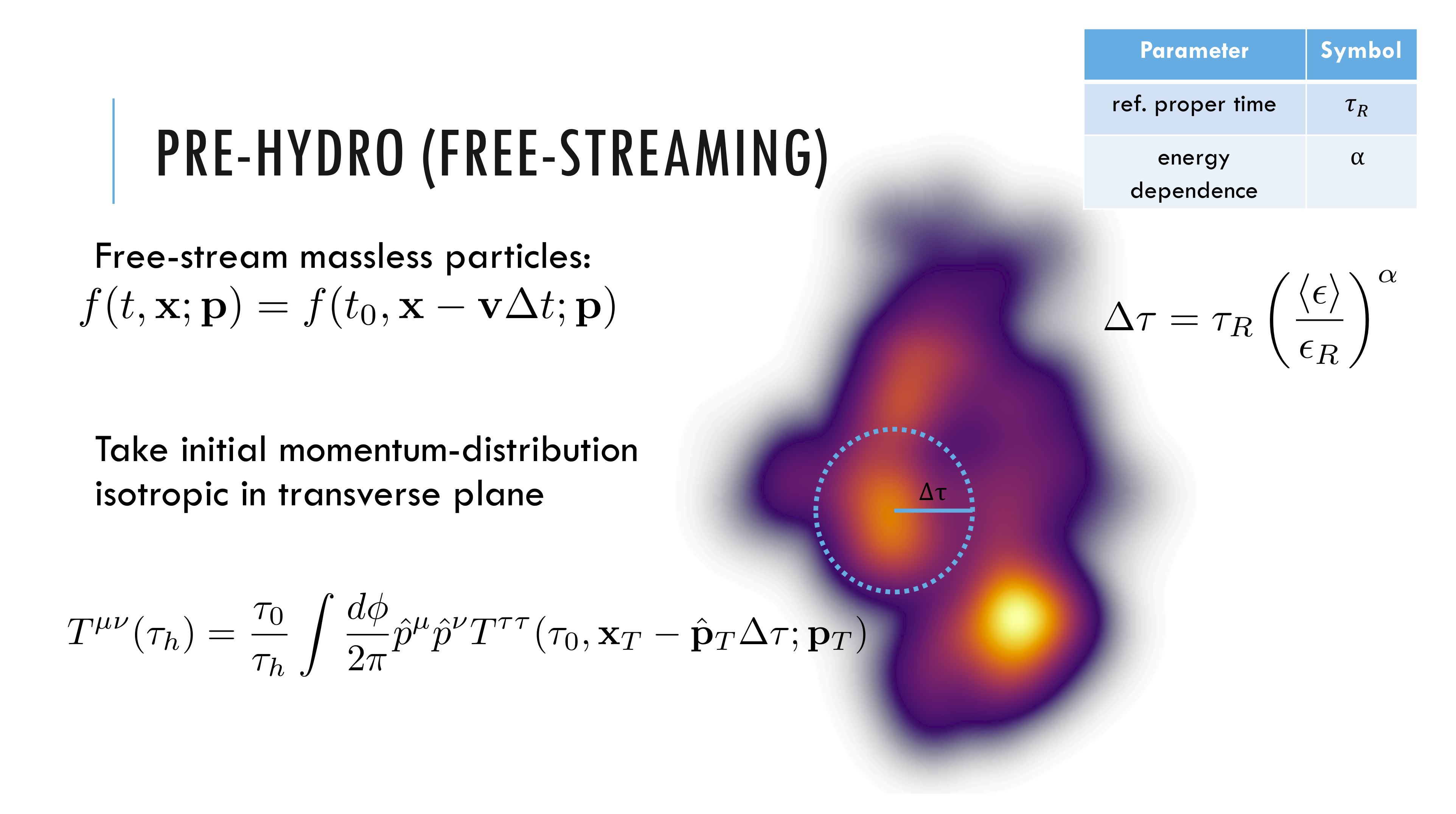
The first dynamical stage of the collision is treated with a free-streaming approximation. The system expands and cools, before we match the full energy-momentum tensor to viscous hydrodynamics.
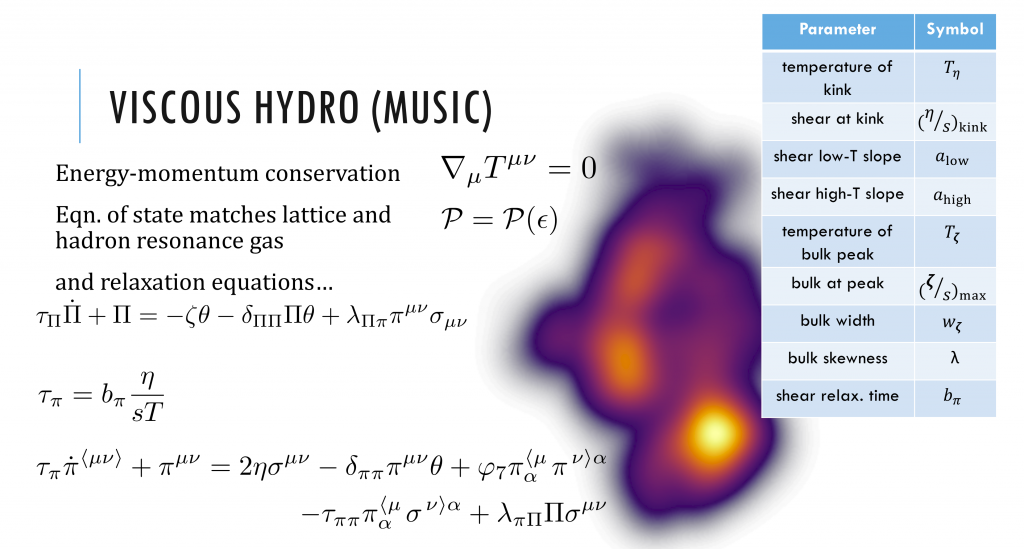
The second dynamical stage is relativistic viscous hydrodynamics, solved by MUSIC. The system continues to expand and cool according to parameterized transport coefficients and a fixed equation of state.
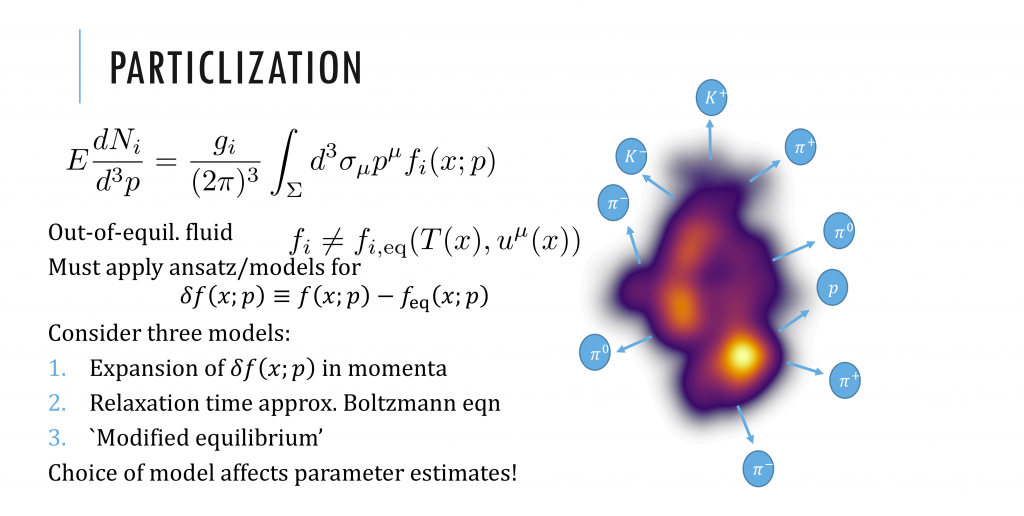
At a switching temperature, the energy-momentum tensor of hydrodynamics is converted into distributions of hadrons. The model of “particlization” used are those included in the iS3D sampler.
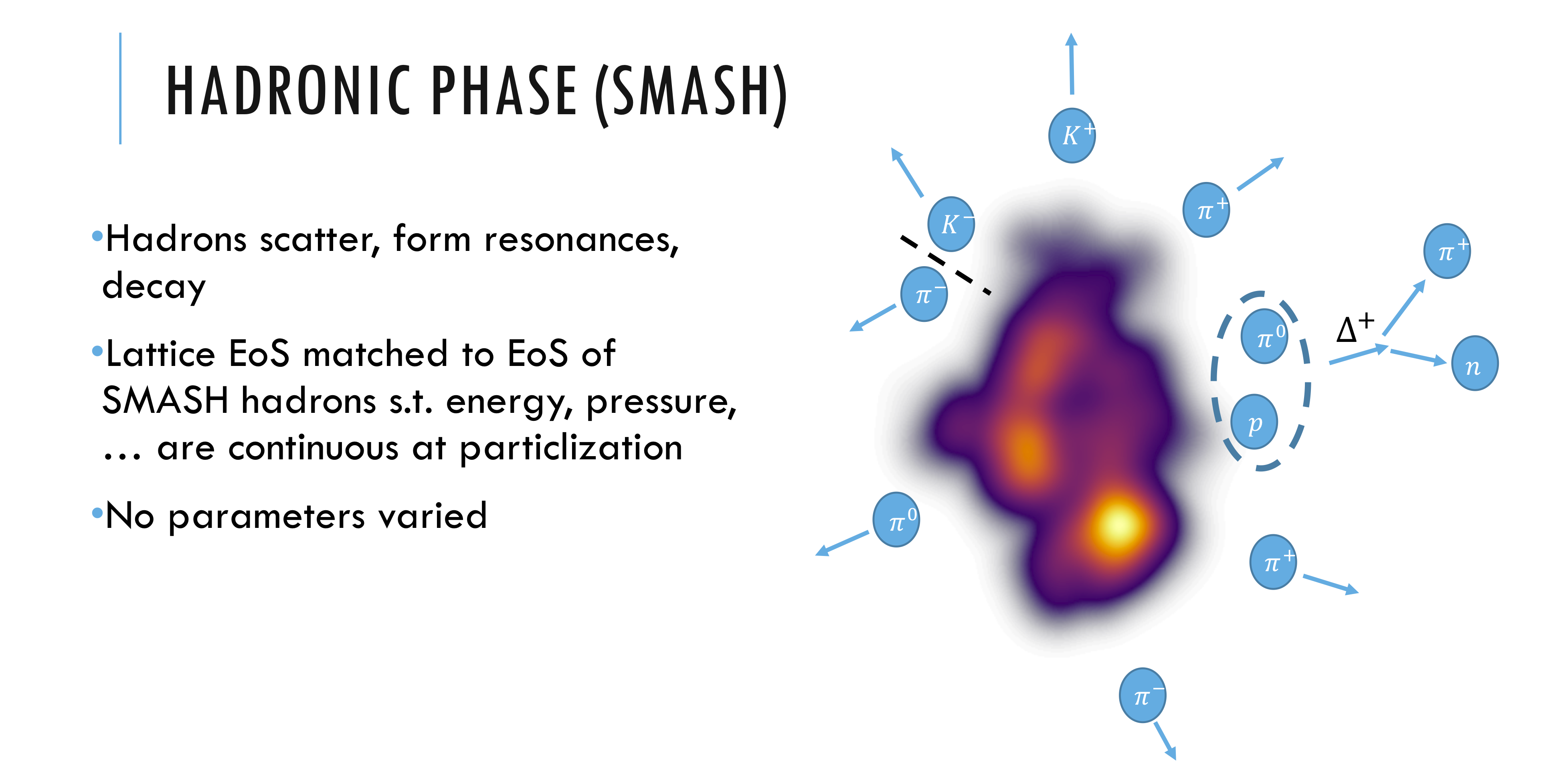
SMASH is a model for evolving a system of hadrons according to a coupled Boltzmann equation. Hadrons can scatter, form resonances and decay until they finally become completely decoupled.
Group Members
Conveners
- Matthew Luzum (University of São Paulo)
- Jean-François Paquet (Vanderbilt University)
Graduate students
- Lauren Kasper (Vanderbilt University)
- Andi Mankolli (Vanderbilt University)
- Derek Soeder (Duke University)
Postdocs
- Lipei Du (McGill University)
- Mayank Singh (Vanderbilt University)
- Xiang-Yu Wu (McGill University)
- Wenbin Zhao (Berkeley)
Faculty
- Steffen Bass (Duke University)
- Charles Gale (McGill University)
- Ulrich Heinz (Ohio State University)
- Abhijit Majumder (Wayne State University)
- Chun Shen (Wayne State University)
- Julia Velkovska (Vanderbilt University)
- Gojko Vujanovic [Convener: 2018-2021] (University of Regina)
Alumni
- Dan Liyanage (Ohio State University, graduated 2023)
- Matthew Heffernan (McGill University, graduated 2022)
- Derek Everett (Ohio State University, graduated 2021)
- Weiyao Ke (now faculty at Central China Normal University)

